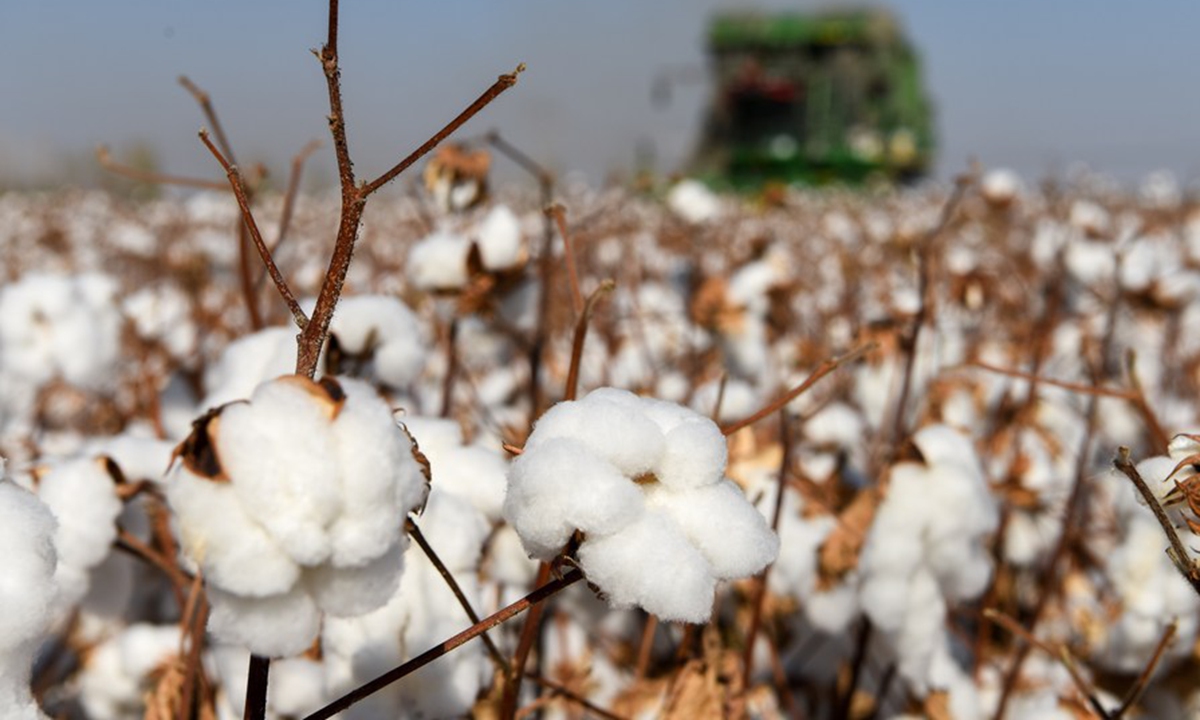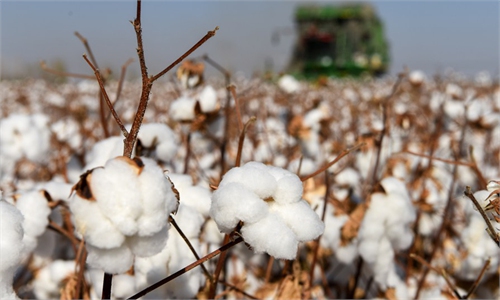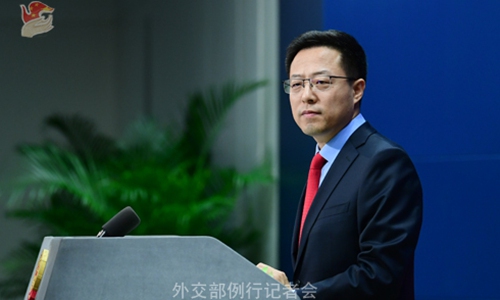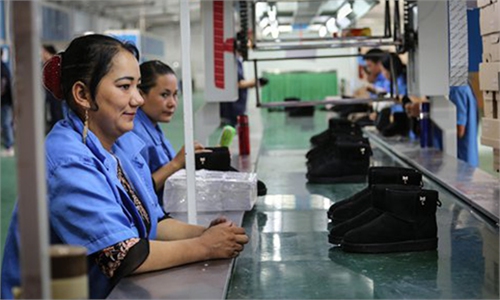China rebukes US Xinjiang ban, calling ‘forced labor’ accusations ‘lie of century’
China rebukes US Xinjiang ban, calling ‘forced labor’ accusations ‘lie of the century’

Modern agriculture gaining ground in Xinjiang's cotton fields
China vowed to take all necessary measures to protect its companies' interests after the US announced a ban on imports of cotton and tomato products from Northwest China's Xinjiang Uygur Autonomous Region, citing "forced labor" concerns.
The US' latest ban on all cotton and tomato products from China's Xinjiang region was announced by its Customs and Border Protection on Wednesday, after the UK and Canada introduced similar measures and US-based Human Rights Watch (HRW) released its annual report lashing China's "human rights records" in its Xinjiang and Hong Kong regions.
The Wednesday ban, which was made by the Trump administration in its final days, applies to raw fibers, apparel and textiles made from Xinjiang-grown cotton and tomato-based food products. It also applies to products processed or manufactured in third countries, Reuters reported.
Chinese authorities, including the Ministry of Commerce (MOFCOM) and the Foreign Ministry (FM), voiced strong opposition to the ban on Thursday, calling it the latest move meant to interfere with China's domestic affairs based on disinformation and untenable lies, and saying that it would destroy the stability of the global industry chain.
Chinese FM spokesperson Zhao Lijian said the "forced labor" accusation was the "lie of the century" made by the US and some Western countries, and the ban it has imposed based on lies would hurt the world, including Americans' interests.
"The US ban is a unilateral move that gives related Chinese companies no chance to defend themselves. "Forced labor" in Xinjiang is an excuse for the US to impose sanctions on agricultural products and competitive products from the Xinjiang region," Zhu Ying, deputy director of the National Human Rights Education and Training Base of Southwest University of Political Science and Law, told the Global Times on Thursday.
"The US is trying to prop up its own agricultural development by setting such trade barriers, as well as containing China," Zhu said, noting that China could also take countermeasures against US companies since forced labor issues also exist in the US.
Zhao told a Thursday press conference that reports on US "forced labor" issues appeared in the media now and then. For example, in the US state of Texas, prisoners were reportedly forced to work 12-hour shifts to make masks for no pay after the COVID-19 outbreak.
The US and some Western countries have long hyped "forced labor" topics in China's Xinjiang region, but other than flawed reports by anti-China think tanks or lies made by overseas separatists from Xinjiang, they could offer no solid evidence.
Global Times reporters visited many companies in cotton-related industries and reached many Uygur workers, who confirmed that no "forced labor" issues existed.
However, due to US sanctions, some companies in the cotton-related industries in Xinjiang, and one of the main tomato and cotton-related producers - the Xinjiang Production and Construction Corps - have been affected. They have begun to seek markets beyond the US, the Global Times has learned.
An industry insider, who spoke on condition of anonymity, said that Xinjiang supplies about one-sixth of global cotton each year, which makes it impossible for foreign cotton buyers to find substitutes for the high-quality crop. More than 83 percent of China's cotton comes from Xinjiang. More importantly, cotton grown in Xinjiang plays a vital role in the global supply chain, and it is extremely difficult for companies to find any replacement.
HRW also criticized China for "repression" of Uygurs in its annual human rights report, and it claimed that the human rights situation in China is worsening.
But the reports it listed - whether regarding so-called forced labor accusations or destroying Uygur cemeteries - have already been debunked by the Chinese government and the Global Times.
"It is nothing but a pile of lies without any logic. Compared with the US' longer list of actual human rights abuses, it becomes harder for HRW to make the Chinese list," Zhu said.





